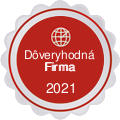Biologický vplyv vzdušných iónov. /angl./

Biological impact of small air ions.
Biologický vplyv malých vzdušných iónov.
Abstract
The thrust of the experimental data presented here is that small air ions are biologically active. There is convincing evidence that both negative and positive ions (i) inhibit growth of bacteria and fungi on solid media; (ii) exert a lethal effect on vegetative forms of bacteria suspended in water when opportunity is provided for contact of cells and ions; and (iii) reduce the viable count of bacterial aerosols. Through physical action, ions of either charge upset the stability of aerolosized bacterial suspensions and, in addition, have a direct lethal effect which is more prominent with negative ions than with positive ions. With regard to the serotonin hypothesis of air ions action, the situation is more complex. The essential fact is that mice and rats display a charge-related metabolic response to air ions and this phenomenon also occurs in humans. Because serotonin is such a potent hormone, the ultimate functional changes incident to air ion action are impressive and account for the signs of symptoms of the sharav syndrome. Alterations in the cumulative mortality rate with three experimental respiratory disease in the mouse also are charge-dependent, positive ions routinely exercising a detrimental effect. Further, in the case of mice infected with influenza virus, ion-deprivation increases the cumulative mortality rate. Since ion depletion is a constant concomitant of modern urban life, one reasonably may speculate about comparable inimical effects on humans.

